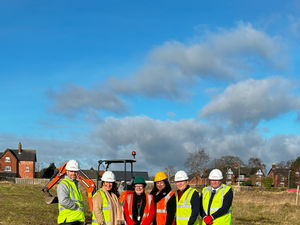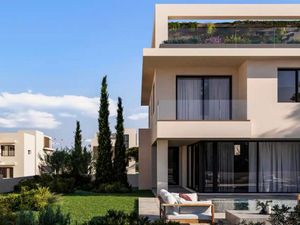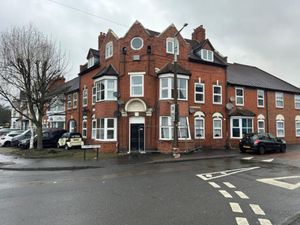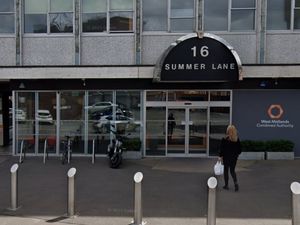Thousands more West Midlands homes built - but green belt fears remain
Housebuilding in the West Midlands has surpassed pre-Covid levels with almost 17,000 homes being built in the region within 12 months, figures show.
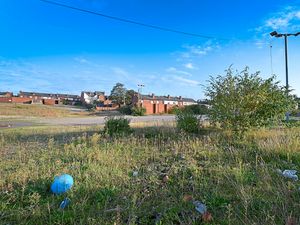
Government data has revealed in the year to March 2022 there were 16,730 additional homes – 203 more than in the year to March 2020.
It means the region is on track to meet the 215,000 new homes target it requires by 2031 to help meet future housing and economic needs.
But it has in turn led to fears growing once more for the region’s precious green belt land.
However West Midlands Mayor Andy Street, chairman of the West Midlands Combined Authority (WMCA), has assured residents he is doing all he can to ensure more brownfield sites are utilised for housing rather than having to sacrifice countryside.
He said: “To see house building return to pre-pandemic levels across our region is welcome news, especially for the thousands of people working in the construction industry.
“But it also vindicates our decision to carry on investing to regenerate more brownfield sites. That refusal to take our foot off the pedal succeeded in keeping projects moving has provided much-needed market confidence at a time of great uncertainty.”
It comes as the region’s councils are all now drawing up their own plans on how to meet housing targets after the Black Country Plan fell through due to disagreements over which green belt to include.
Dudley Council leader Councillor Patrick Harley was the first to pull out of the region-wide plan saying that he would not sacrifice the borough’s green belt for others.
‘We will not let up on building houses but in the right places’
Leaders have promised there will be “no let-up” in the drive to build homes across the region where they are needed most – and ease pressure on the green belt.
Chiefs from the West Midlands Combined Authority (WMCA) made the pledge as they look to continue targeting more disused brownfield land for development.
It comes after a string of sites were remediated and transformed – including the former Harvestime bread factory in Walsall, which has been turned into 88 homes.
The move has helped alleviate pressure on the green belt as housebuilding continues to ramp up in the region.
Councillor Mike Bird, WMCA portfolio holder for housing, property and regeneration and leader of Walsall Council, is determined to keep on building homes.
He said: “Despite these encouraging new figures there will be no let-up in our drive to build new homes and communities where they are needed most.
“Brownfield regeneration to provide good quality, affordable homes for local people and modern workspaces for businesses to grow, prosper and create new jobs remains a key part of our Plan for Growth strategy which is aimed at building a sustainable and inclusive economic recovery.
"The spin-off from this ‘brownfield first’ approach and our drive for new, energy efficient housing is that it supports our #WM2041 ambition to be a net zero region within the next two decades and helps protect our natural environment by relieving pressure to develop in the Green Belt.”
Councillor Bird believes there needs to be more help from Whitehall if house building targets are going to be met in coming years.
He said: “That’s why more funding and powers for regeneration are a key component in our on-going talks with Government around a new trailblazing devolution deal for the region.”
Since signing a landmark housing deal with Government in 2018, WMCA investments alone have delivered more than 8,000 new homes, 12,000 new jobs and 3.8 million sq ft of commercial floorspace – using the £600 million from ministers to drive the sector forward.
Work to remediate land has allowed developers to take on the land, but in return they must make a minimum 20 per cent of the new homes affordable as per the WMCA’s own definition – linked to real world local wages, rather than property prices.”
Several major housebuilding developments are well underway in the Black Country.
Nearly £4 million was secured to pave the way for Lovells to build 234 homes on the site of an old foundry in Fountain Lane, Oldbury And £1.5m has been earmarked for the Vistry Partnerships transformation of the former Harvestime bread factory in Walsall into a new 88 homes community
Developers also celebrating the completion of the 151 home Saints Quarter development by Lovells on derelict land in Steelhouse Lane, Wolverhampton
Andy Street, Mayor of the West Midlands, wants homes build on brownfield sites and attract new industries to provide jobs for new residents.
He said: “As we bounce back from Covid and seek to supercharge our recovery, a key mission for our region is to meet the demand from local residents for new, affordable housing as well as for modern commercial premises for local firms to move into and expand from.
“We have set ourselves the target of building 215,000 new homes across the West Midlands by 2031 and we are also encouraging green, innovative industries to set up here to help attract the high quality, well-paid jobs of the future.
“Our results on the ground clearly show that the Government was right to place its confidence in our region to get this done. Not only are we on track with housebuilding, our brownfield first regeneration approach is also bringing acres of derelict industrial land back into use whilst helping to protect our precious green belt – with the WMCA making use of money secured from the Government to clean up, accelerate and unlock brownfield sites.”
He added: “It’s especially impressive that we have achieved these numbers despite the challenges of lockdown and it’s a testament to the hard work of WMCA colleagues and a whole host of stakeholders and partners that we have got here.”

